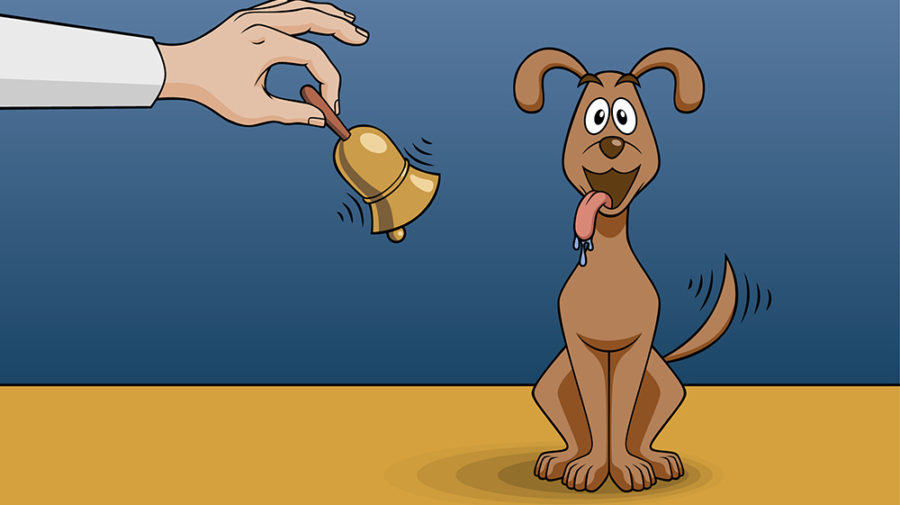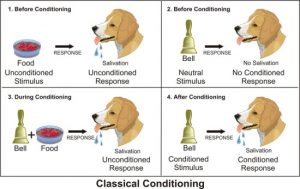Have you ever experienced your mouth watering at the thought of tasty food? Do you start feeling hungry when it’s close to your lunch break? Have you ever thought what actually causes secretion of saliva and gastric juices even though you don’t have any food in the mouth? This phenomenon was explained by Ivan Pavlov, through a series of experiments done using dogs.
Ivan Pavlov was a Russian Physiologist. He was very much interested in physiology and therefore entered the University of Petersburg to take courses in Natural Sciences. After completing his studies he was invited to the Institute of Experimental Medicine, to direct the department of Physiology. There he conducted a research to understand the gastric function of dogs which eventually led to the discovery of the concept of classical conditioning.
Just like many brilliant scientific discoveries, this concept was also discovered accidentally by Pavlov when he was examining the salivary glands of the dogs.
At first he thought that there is no need to teach some responses to dogs (like salivating when the food is near), and that these responses are hard-wired to dog’s brain. He termed these as Unconditioned Responses. Then one day he observed that these dogs also start salivating once they see the lab assistant who gives them food everyday. This made him realize that these dogs have learnt to associate the food with the lab assistant and this has triggered the same response (salivation) as before. He further stated that the lab assistant was a neutral stimulus (because it doesn’t make any response) and the dogs have associated the neutral stimulus with the unconditioned stimulus (food) and this has resulted in the same unconditioned response (salivation). But now that response was learnt therefore he termed it as a conditional reflex.
So to check his hypothesis he conducted experiments in which the dogs were given food at the sound of a buzzer (or a bell). And after few repetitions the dogs learned to associate the sound of the buzzer with the food and started salivating even when only the buzzer was sounded. This process was termed as Classical Conditioning (conditional reflex / Pavlovian conditioning); classical because it was the first systemic study of the basic laws of conditioning.
With further studies it was observed that conditional reflex was learnt quickly if the neutral and unconditional stimulus was presented with less time gap.
References :
Behaviorism (n.d.) Retrieved from https://en.wikipedia.org/wiki/Behaviorism
Ivan Pavlov (n.d.) Retrieved from https://en.wikipedia.org/wiki/Ivan_Pavlov
Pavlov’s Dogs (n.d.) Retrieved from www.simplypsychology.org › Perspectives › Behaviorism
Classical Conditioning (n.d.) Retrieved from https://en.wikipedia.org/wiki/Classical_conditioning
Image credits:
https://d26v70zl50qz3k.cloudfront.net/wp-content/uploads/2015/04/pavlov-dog-article-featured-900×505.jpg
https://edpr2111.files.wordpress.com/2014/10/pavlovdog.jpg?w=550&h=347


